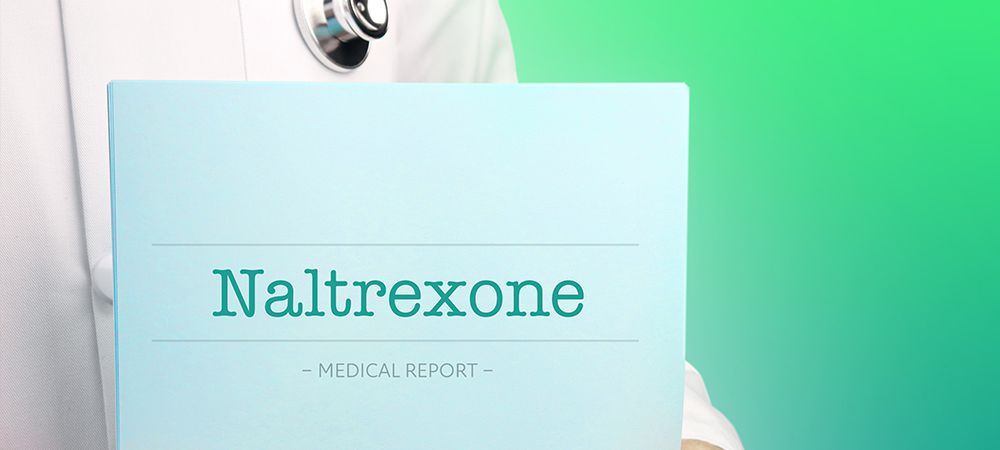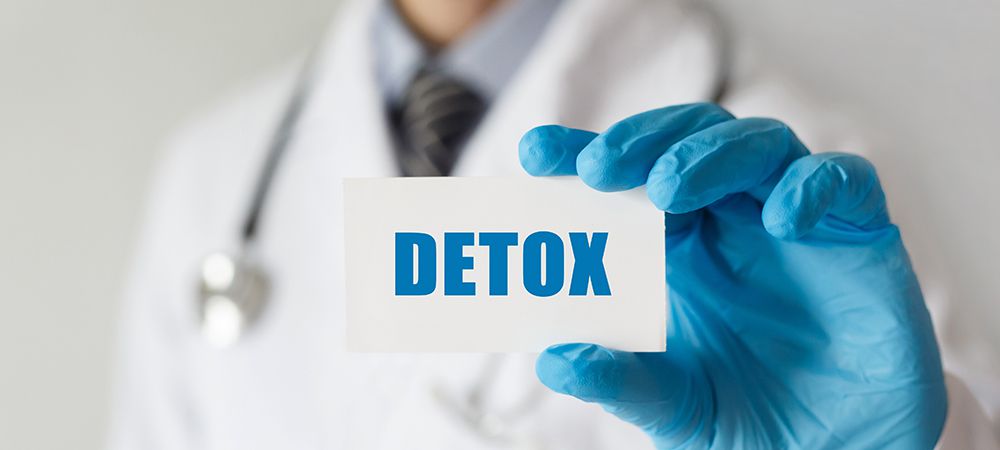Medical detox is the very first rehabilitation stage in the addiction recovery process. After medical detox comes behavioural therapy, continuous medication and aftercare support.
The answer to the question “how does medical detox work” lies in the need for this treatment step. Medical detox is super important because it clears toxins present in a patient dependent on drugs or alcohol. It also doubles as the management procedure for withdrawal symptoms that’ll come when patients stop using drugs.
Withdrawal can be deadly in patients who have been dependent on drugs for a long time. Medical detox is also important here because it provides an environment for health professionals to monitor and ease the withdrawal process.
So how does medical detox work? How can you enjoy the many advantages that come with medical detox? This blog will answer those questions in detail. We’ll explore a step-by-step process for what happens during a medical detox program and also answer FAQs.
Let’s get into it.
Who Needs Medical Detox?
When you use drugs or alcohol for a long time your body will start to become dependent on drugs. Your brain starts to get used to the effects of the drug. It starts to change, adapting to function normally in the drug’s presence. With time, you’ll build a tolerance, needing more doses to get the same effects.
Tolerance is a gateway to the dreaded eventuality that is dependence. Drug or alcohol dependence describes a state where your body needs the substance to work normally. Your body reacts negatively in the substance’s absence. These negative reactions include fevers, headaches, and vomiting. Professionals in the addiction world refer to these negative reactions as withdrawal symptoms.
Withdrawal symptoms and substance cravings make it hugely difficult for addicts in recovery to stay away from drugs or alcohol. If you don’t give in to the cravings, the pain from the withdrawal symptoms may force you to use drugs. Medical detox programs become necessary to help you navigate these symptoms successfully.
Outpatient supervision and medication can work in less intense addiction cases. However, cases of severe substance abuse demand 24-hour medical care and supervision. These are conditions a medical detox program at a standard facility looks to create.
Medical detox programs are the safest way to rid your body of drugs or alcohol thanks to the level of care and supervision. 24-hour nursing care, daily monitoring and strict medication allows patients to start their addiction recovery journey on a solid foundation.
Some drugs that demand medical detox care include:
- Opioids
- Alcohol
- Stimulants
- Prescription Stimulants
- Marijuana
- Benzodiazepines
- Synthetic drugs
Recovering from an addiction to these drugs without medical assistance is dangerous. However, a supervised detox program increases your chances of long-term recovery. Even at-home detox kits are not nearly as effective as medical detox programs.
Related Article: How Long Does Opiate Detox Take?
Medications Used During Medical Detox Programs
Medication is an important part of how medical detox works. They’re useful for alleviating withdrawal symptoms and decreasing the intensity of cravings. Although medication is a critical part of medical detox, it should never be self-administered.
Addiction treatment specialists administer these medications on a patient-by-patient basis. You may have a higher dosage depending on how intense your addiction symptoms are.
Common medications for medical detox include:
Methadone
Initially, Methadone was used to treat opioid withdrawal in the early fifties. However, it’s unique action means it’s now a mainstay of addiction treatment programs.
Methadone is an opioid, with the same addiction potential as street opioids. Therefore, its usage is strictly monitored. Despite the potential for addiction, Methadone’s effectiveness in preventing opioid withdrawal symptoms can’t be ignored.
So how does medical detox with Methadone work? Your addiction specialist will taper off your dosage as your cravings reduce. Just be sure that you’re getting methadone treatments at a licensed detox centre.
Naltrexone

Naltrexone is useful in the treatment of alcohol and opioid addictions. It’s a long-acting opioid blocker that precipitates opioid withdrawal. The potential for interaction with opioids means patients using Naltrexone must follow a strict zero-opioid policy for seven days.
Vivitrol
Vivitrol is naltrexone in injection form. Therefore, it’s useful for treating opioids and alcohol abuse disorders. The difference is in the frequency of use. While Naltrexone demands daily pills, a single Vivitrol injection can work for one month. Just like with Naltrexone, you can only get a Vivitrol injection after abstaining from alcohol or opioids for 7-10 days.
Suboxone
Suboxone was approved for treating opioid abuse disorders in 2002. The active ingredient in Suboxone is Buprenorphine, a particular opioid receptor activator. It’s nearly as effective as Methadone in treating opioid addiction while carrying less overdose and addiction risk.
Sublocade
This medication is relatively new in the world of addiction treatment. Sublocade’s action is similar to Suboxone but it’s different in that it’s an injectable.
The possibility of addiction to Sublocade is low thanks to its administration method. However, only patients who have used Suboxone for seven days are eligible for Sublocade injections.
What Is the Process for Medical Detox?
Medical detox works thanks to a three-step process namely: evaluation, stabilization and preparing for future treatments. This three-step process is the perfect combination of treatment, knowledge exchange and preparation. Here’s what we mean:
Evaluation
The evaluation stage is an important part of how medical detox works because it determines your treatment plan. It usually involves a physical examination, blood tests and screening for co-occurring mental health issues. The evaluation state also involves a therapist assessing your psychological state.
Your results from these initial tests will determine your addiction treatment plan. Your specialist can identify the type of medication you need, level of medical supervision and whether or not you require mental health specialists.
Stabilization
The second stage in medical detox is where you start to discontinue drug or alcohol use. Here, medical professionals will help you attain sobriety and medical stability.
The stabilization stage includes the administration of medication to ease withdrawal symptoms. Stabilization can last for 1-3 weeks depending on the intensity of your addiction. The stabilization stage involves round-the-clock supervision, strict medication dosage and general medical care.
Preparation
The preparation stage in medical detox is where the main knowledge exchange happens. It’s where addiction specialists start to prepare you for the upcoming psychological challenges. You’ll start to learn about therapy, 12-step programs and long-term addiction treatment techniques.
What Happens During Medical Detox
Typically, your medical detox program will start with an interview session. The medical professional will ask questions about your medical history, severity of substance abuse and medical history. They’ll also ask about any health deficiencies, mental health issues, infectious diseases and more.
The next step is developing a medical detox plan that works for you. The medical specialist will take your personal preferences into account making sure that you feel safe and comfortable within the facilities. Then, you’ll get assigned to your room with round-the-clock intervention to ensure you’re following the detox plan.
Medical detox can be a painful experience despite medical intervention and round-the-clock care. But you have to find the willpower to pull through. You’ll feel healthier once you complete your medical detox program. More importantly, you’ll be in the right frame of mind to complete the next phase of your treatment.
How Long Does Medical Detox Take?
The timeline for medical detox differs depending on the following factors:
- Type of drug addiction
- Duration of addiction
- Health conditions
- Family history
- Age
- Weight
You’ll likely feel the more intense withdrawal symptoms during the first few days of medical detox. These intense symptoms can range from diarrhoea to muscle pain, vomiting, tremors and fever.
While medication can ease intense physical symptoms, it’s largely useless against psychological side effects of addiction withdrawal. These psychological side effects include depression, anxiety and insomnia. They can last for weeks or months depending on the patient’s unique characteristics.
FAQs about How Medical Detox Works?

Below are answers to common questions:
Can You Stop Detox at Intervals?
It’s best to consider outpatient detox care if this question applies to your situation. Outpatient care involves showing up for assessments and medication at predetermined intervals. It works best for mild addiction cases.
Is Detox a Sign That I’m Weak?
Detox as a sign of weakness is an unfortunate stigma associated with addiction. Physical withdrawal symptoms are serious and not a sign of weakness. It’s best to register for a medical detox program where you’ll be under the care of addiction specialists.
Can I Pay for Detox with Insurance?
Most addiction detox centres accept insurance payments. Other alternative payment options include state programs, employee assistance benefits and self-payment.
Does Detox Treat Addiction?
Medical detox helps to remove toxins and drug substances in your body. It’s a safe way to quit using a particular substance because you get medical attention for the withdrawal symptoms.
Despite these benefits, detox is not a treatment for addiction. It doesn’t address the causative factors that begin an addiction. It only creates a solid platform to help patients achieve long-term sobriety.
When Can You be Admitted for Detox?
You can start a medical detox program at any time of the day. Most medical detox centres in Ontario offer same-day admittance for patients in emergency situations.
Is Detox Available for Teenagers?
Detox is available for teenagers with a history of substance abuse. Call us today to learn more about our detox treatment policies for teenagers.
Related Article: Home Remedies to Ease Opiate Withdrawal
Choose Medical Detox Today
We’ve provided a detailed breakdown of how medical detox works. It always starts with an assessment step before evaluation and a treatment plan.
Here at Medical Detox Ontario, we offer customized detox treatment plans. Contact us today to learn more!

